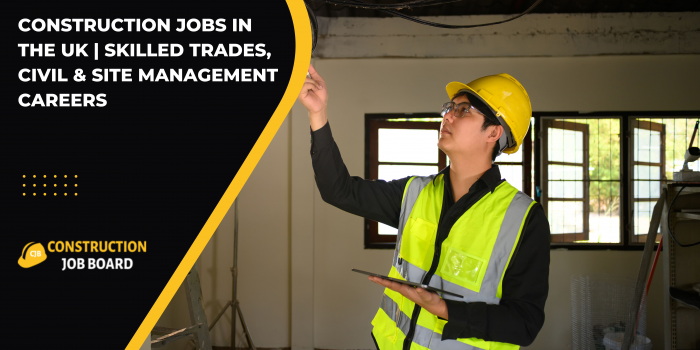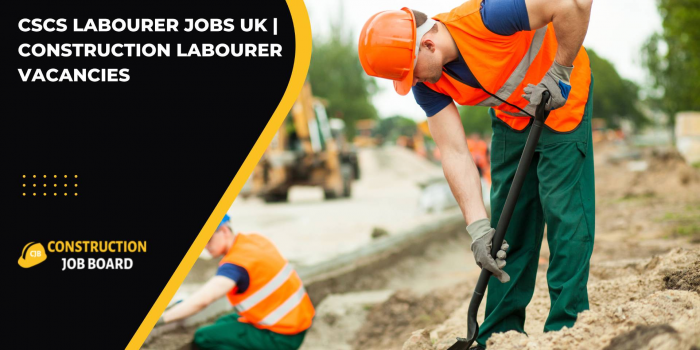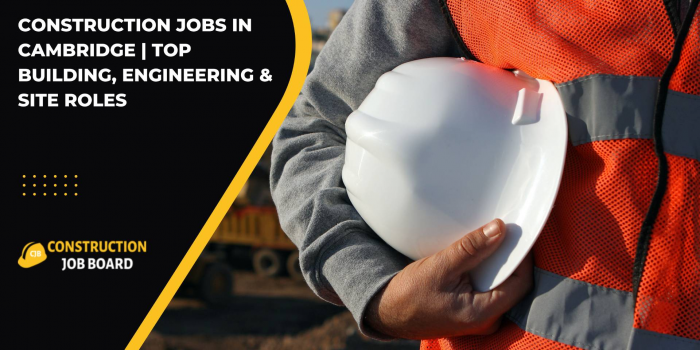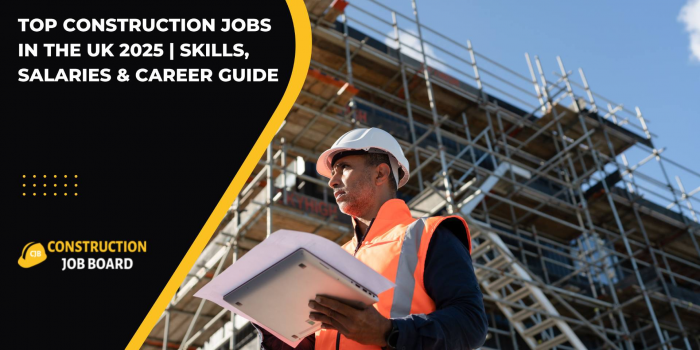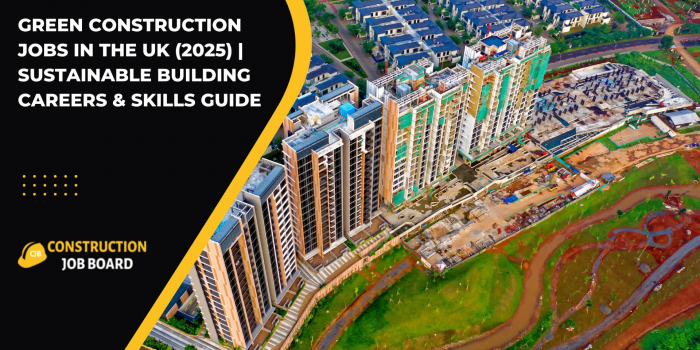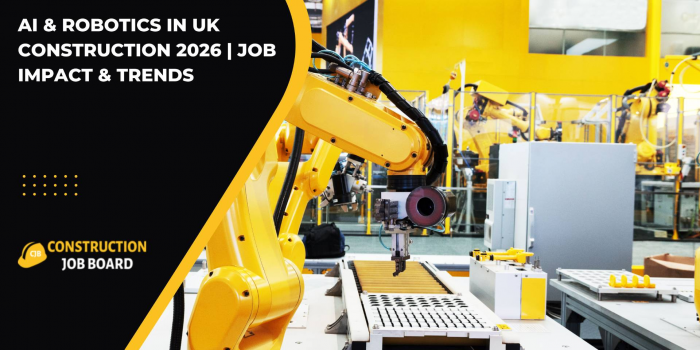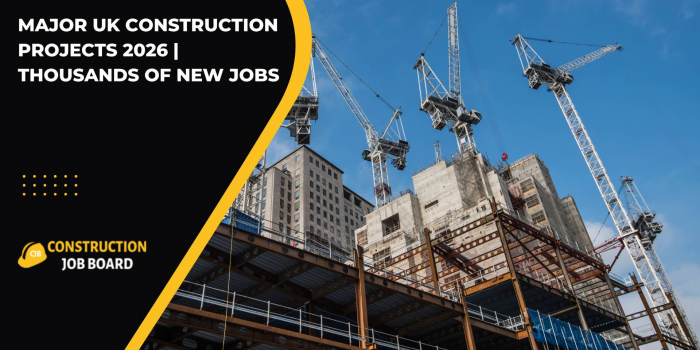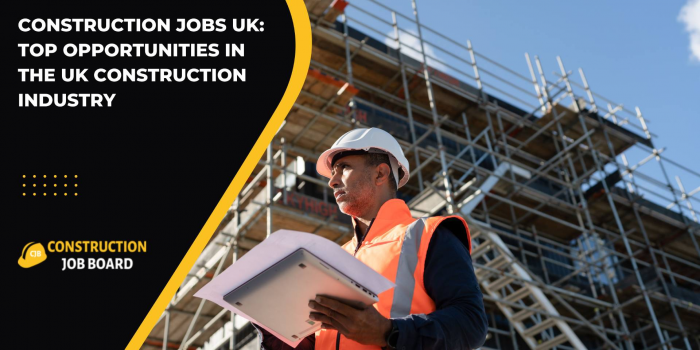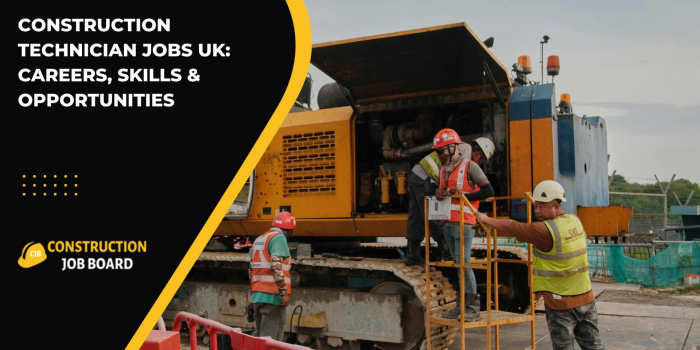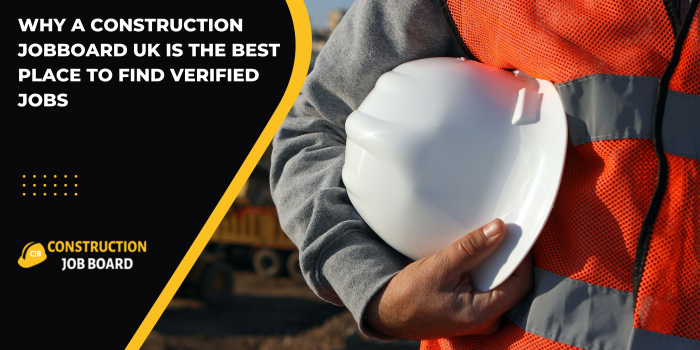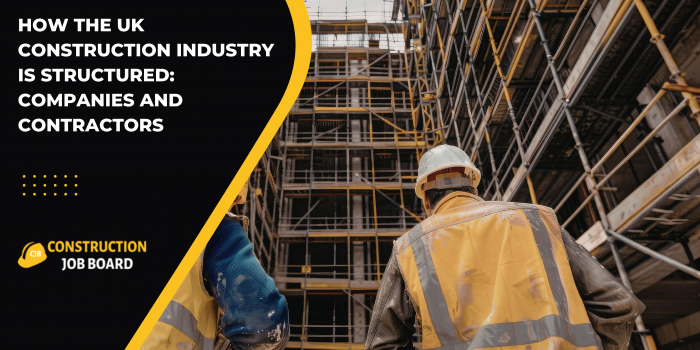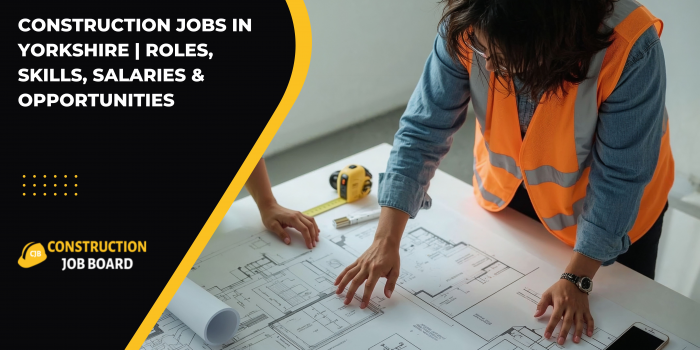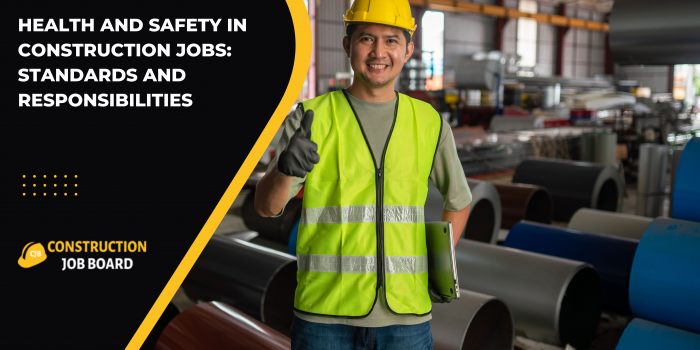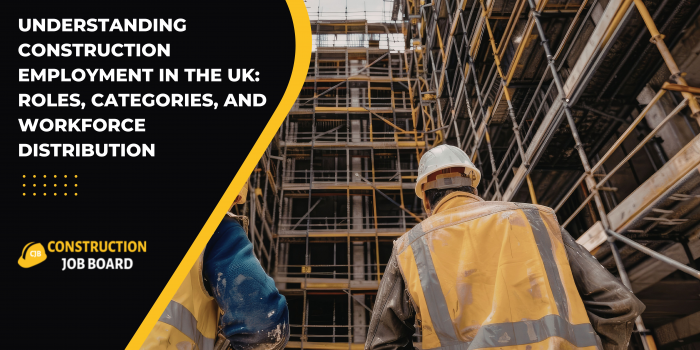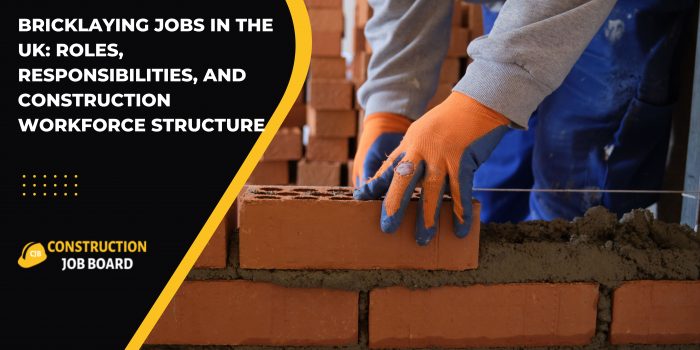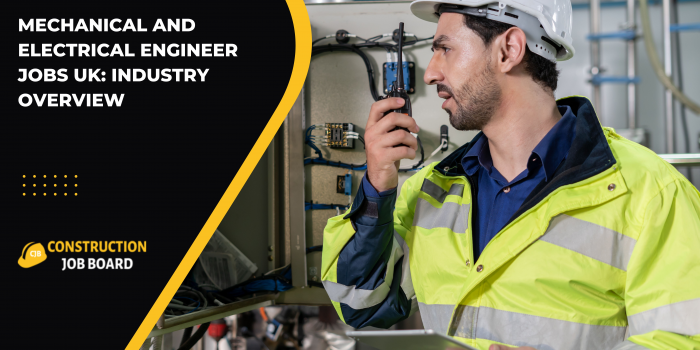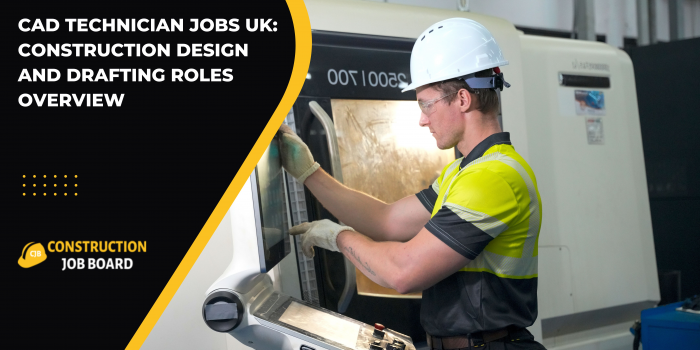The Future of Modular Construction Jobs in the UK | Careers in Construction
22/09/2025
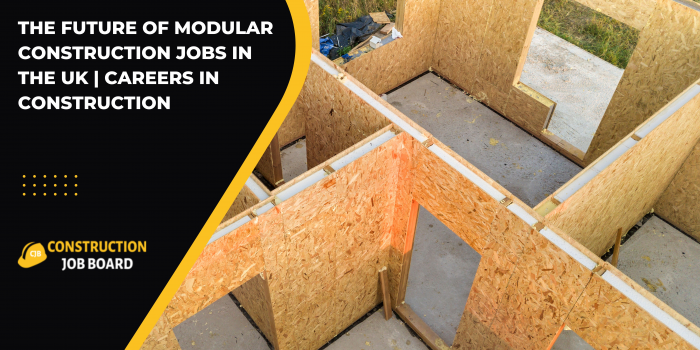
The Future of Modular Construction Jobs in the UK A New Era for Construction Jobs
The construction industry in the UK is experiencing an enormous transformation, and the development of modular construction is one of the more exciting changes. As technology and new technologies, tools, and techniques continue to expand, modular construction is changing the landscape of construction jobs in the UK. In this article, we explore the future of modular construction jobs, how they are changing the industry, and what it means for job seekers and employees in the construction industry.
What is Modular Construction?
In modular construction, buildings or sections of buildings are built off-site in a factory and then brought to a site ready for assembly. The building process therefore occurs faster, is often less expensive, and is more efficient than traditional methods of building. Modular construction is becoming more prominent in the UK due to the continuing demand for buildings that are sustainable, cost-effective, and high-quality.
How Modular Construction is Changing the Job Market in the UK
1) New Skills for Construction Workers
One of the large impacts that modular construction has had on the construction job market in manufacturing demand is for workers with specialized skills. Because of the off-site component of modular construction, construction workers specifically need to understand how off-site manufacturing works, be comfortable using digital design tools, and understand how new technologies at the field level and off-site level interact together.
Key Skills in Demand
CAD (Computer-Aided Design) for modular unit design
BIM (Building Information Modeling) for integrated project oversight
Automation and Robotics for efficiency in a production line
Sustainability knowledge, particularly around green materials
With the increase of modular buildings will come a demand for skilled tradespeople to assist in the construction of buildings using some sort of technology. We see these opportunities for trades to evolve and advance within the construction sector.
- Creation of Jobs Associated with Modular Construction
Modular construction focuses on the delivery model for new construction and is likely to create numerous new construction jobs. The modular model requires skilled trades to assemble and install units on-site, as well as workers in off-site manufacturing and quality control and logistics.
Some of the identified roles in modular construction:
- Modular construction technicians are assembling and installing modular units on-site.
- Design engineers are designing and engineering modular unit parts that ensure structural integrity and sustainability.
- Factory workers are working at fabricating modular unit parts utilizing advanced manufacturing fabrication processes.
- Project managers are overseeing the project planning, stabilization, and execution modular construction projects.
- Quality control inspectors are inspecting every part that goes into the module to ensure it meets stringent building codes and quality specifications.
These trades roles create not only variety of new types of construction jobs, but will ultimately provide job growth opportunities in the These new roles not only enhance the variety of construction jobs, but they also provide more jobs into the future of the UK construction industry.
- Growing Multitude of Sustainability-Oriented Roles
Sustainability has become a major part of the modular construction processes. Modular construction allows for eco-friendly construction practices; from materials that are energy efficient, to reduction of waste and carbon outputs, it is seen as a much more environmentally friendly method of construction compared to the traditional building process.
As the UK continues to move toward its goal of reducing its carbon outputs and adhering to sustainability targets, the demand for construction-related jobs that focus on sustainability will continue to grow. Workers with skills in green building design techniques, sustainable materials, and energy-efficient design will be in a higher demand in the future.
- Automation and Technology: Changing the Role of Construction Workers
Automation and robotics in the modular construction foreman are on the rise and changing the roles of workers on the jobsite. With automation taking over manual, repetitive, and dangerous tasks, workers can transfer their focus and energy to more value-added work such as design, quality control, and/or project management.
Technology is starting to impact the role of workers in construction and prompts a combination of technical roles with hands on workers with a focus on operations and/or technical expertise. Workers who adapt to technology with new tools will create new opportunities to advance their careers.
The Effect of Modular Construction on Job Security
One of the primary advantages of modular construction is the possibility of job security. Unlike traditional construction, which can be delayed due to weather, labor shortages, and other variables, modular construction works more predictably. The ability to create parts in a factory means that much of the construction can be done in a controlled environment. This is less risky than the potential of on-site delays being caused by the weather and other factors.
Additionally, modular construction is becoming a trendy option for both public and private sectors, in both housing and health facilities. The growing number of modular buildings could lead to more long-term career opportunities for individuals in the construction sector especially for individuals related to modular building.
The Skills You Need to Take Advantage of Modular Construction
The modular construction industry presents exciting new opportunities for construction professionals in the UK. To take advantage of these opportunities, workers should continuously develop their skills and become accustomed to changes in construction technology.
Important Skills for Future Modular Construction:
3D Printing & Robotics: The worker will require understanding and knowledge of integrating 3D printing technology as it continues to evolve with respect to modular construction.
Project Management: Project management skills will be pivotal as modular construction projects have many teams and locations to coordinate.
Tech Integration: Understanding software applications such as BIM and robotics and automation will be essential to stay ahead in modular construction.
Workers pursuing modular construction jobs will need to invest in training, experience, and certifications around the new technologies.
The Role of Education & Training to Shape Future Workers
As skilled workers become increasingly necessary in modular construction and construction as a whole, there will be a need for more educational programming to prepare the workforce with the necessary skills to be successful. Universities, technical colleges, and training institutions will continue to adapt curriculum development to focus on contemporary construction techniques, sustainability, and technology integration.
Courses that are aimed at construction workers of the future will focus on sustainable building techniques, modular construction, and digital tools used in construction that result in construction related literacy. Workers who enroll in these programs will be ready for the exciting future of modular construction.
Conclusion: The future of modular construction jobs
The future of modular construction jobs is bright and promising in the UK. Modular construction will lead the way as the construction industry responds to rapid environmental change and human needs. With robotics, sustainability, and new materials entering the field, there will be ample occasions for skilled workers with big ideas.
Workers wanting to enter the sector need to keep up with trends, upgrade their skills, and embrace the opportunities presented by construction in the future. There will be demand for modular construction in the future and the sector will have demand for skills and businesses to adapt to changing needs, creating new opportunities for workers.
FAQs
1. What types of jobs are available in modular construction in the UK?
Modular construction in the UK offers a variety of roles, including modular construction technicians, design engineers, factory workers, project managers, and quality control inspectors. These roles cover on-site assembly, off-site manufacturing, planning, and ensuring adherence to quality and building standards.
2. Which skills are most in demand for modular construction careers?
Key skills for modular construction include CAD and BIM for design, robotics and automation for efficiency, sustainable building knowledge, and project management. Workers who can integrate technology with hands-on construction experience are highly sought after.
3. How does modular construction impact job security in the UK?
Modular construction enhances job security by allowing work to be done in controlled factory environments, reducing delays caused by weather or on-site issues. The growing popularity of modular buildings in housing, healthcare, and public infrastructure also ensures long-term career opportunities.
4. How can I prepare for a career in modular construction?
To prepare, workers should pursue education and training in sustainable building techniques, modular construction methods, digital tools like BIM and CAD, and robotics/automation. Vocational courses, certifications, and hands-on experience are crucial for staying competitive in this evolving field.
5. Will modular construction replace traditional building methods in the UK?
Modular construction is rapidly growing but will complement rather than completely replace traditional methods. It offers faster, cost-effective, and sustainable alternatives for standard projects, while traditional construction remains essential for complex or bespoke buildings.


















































































